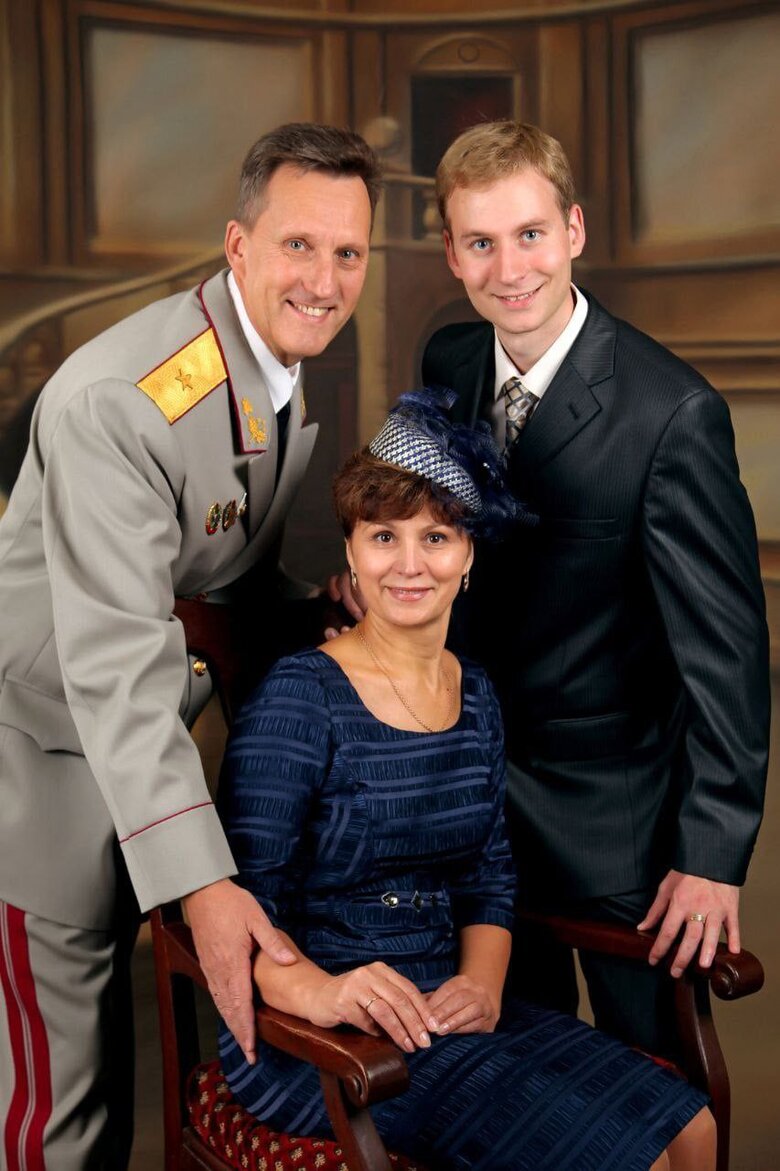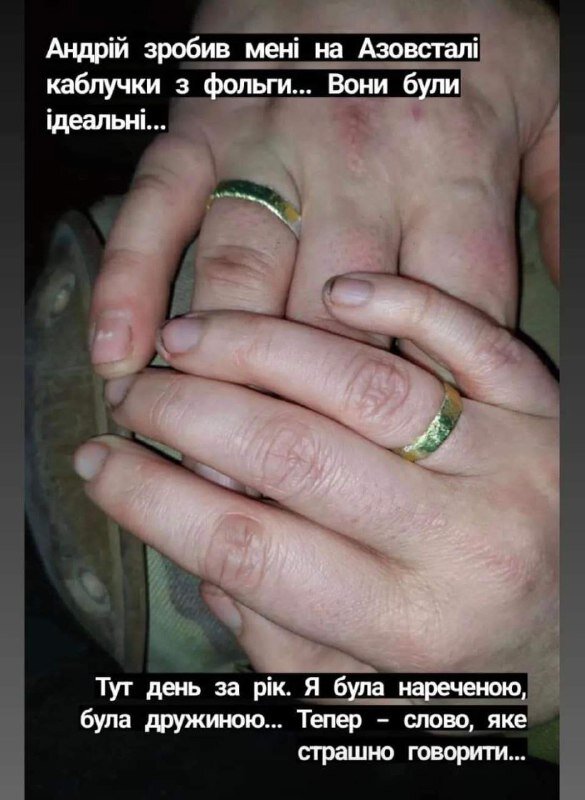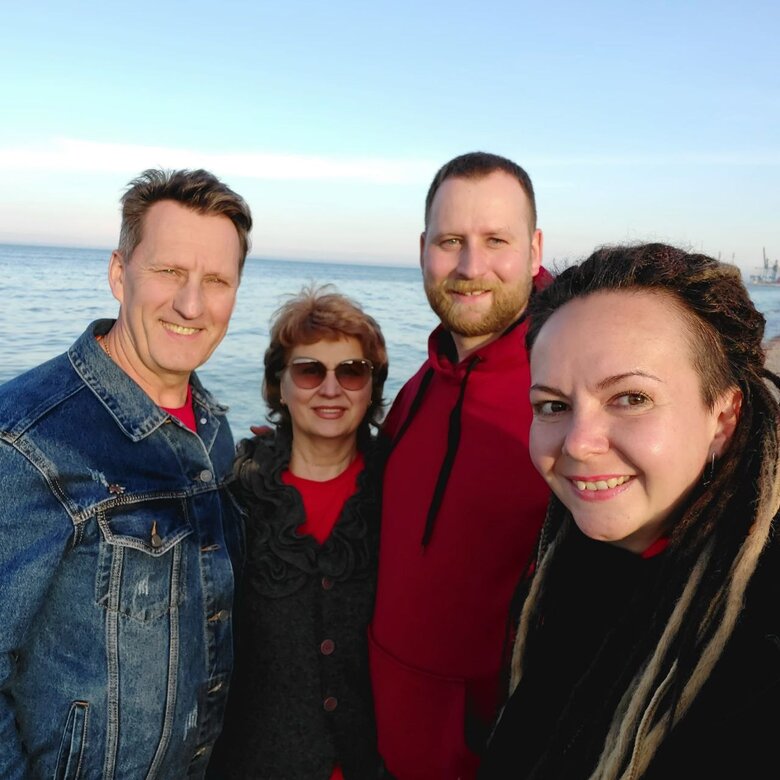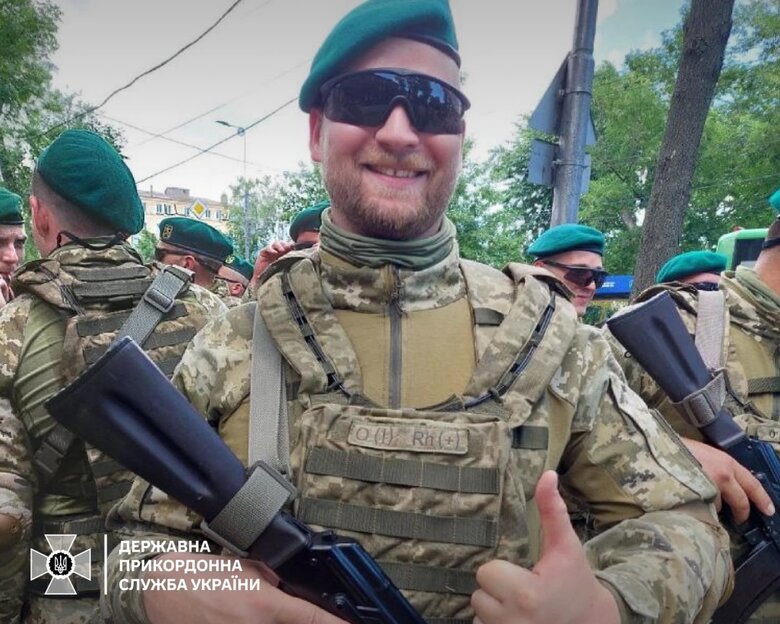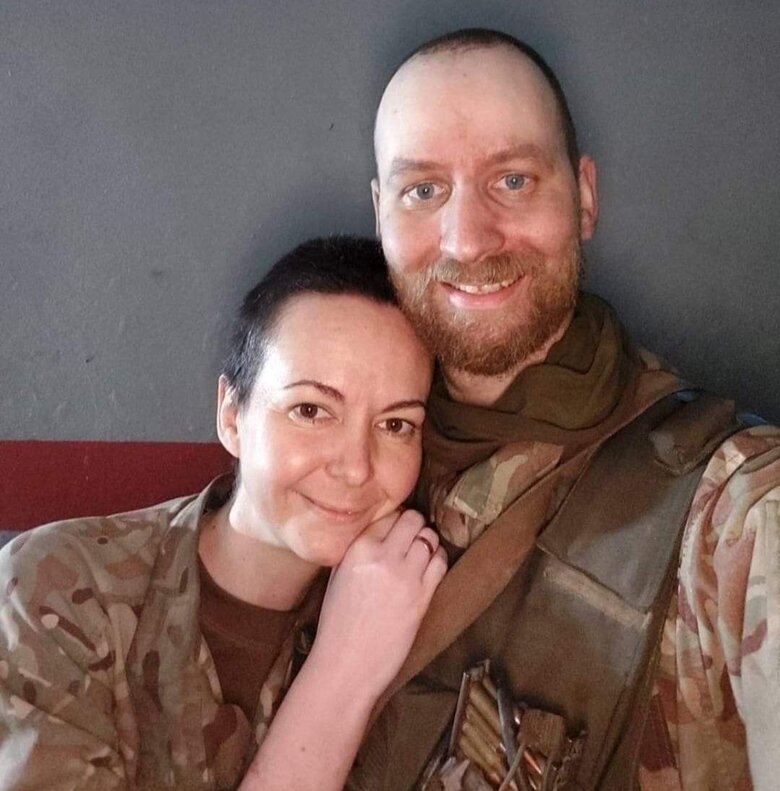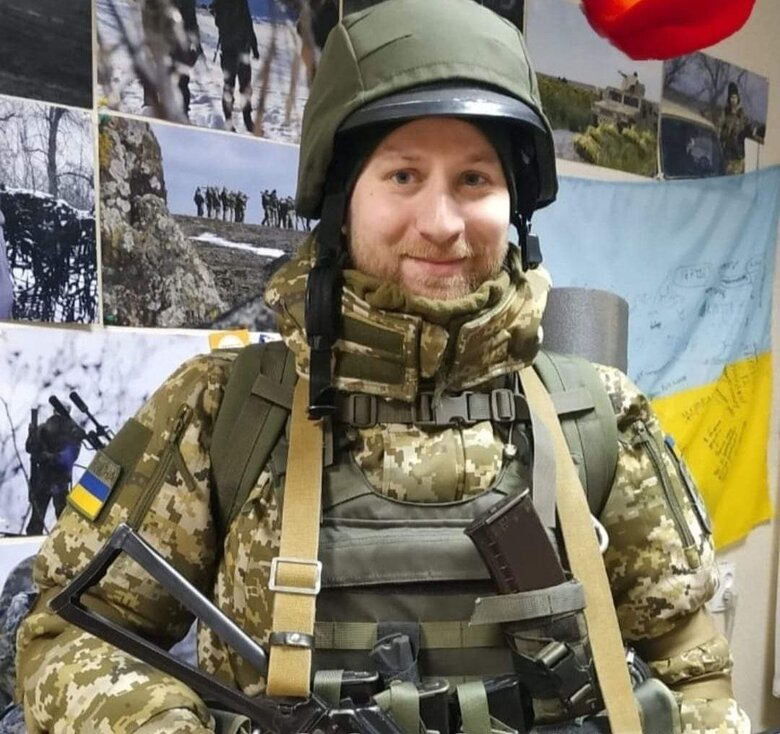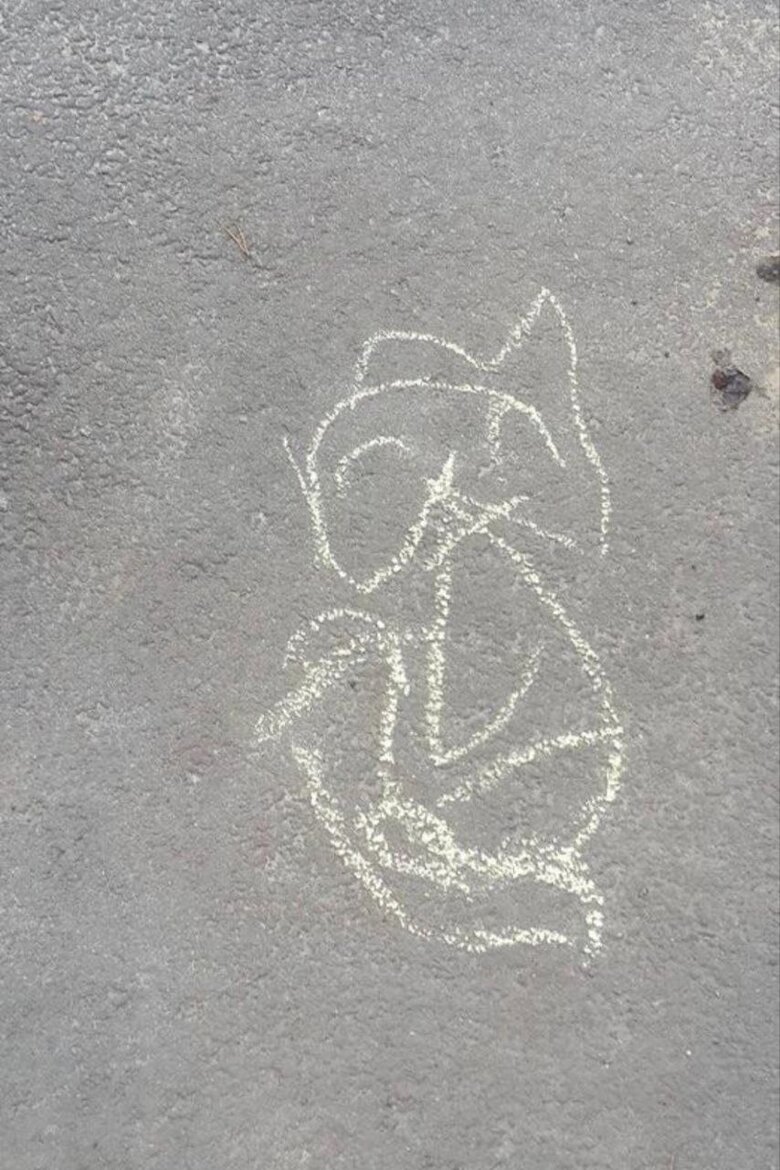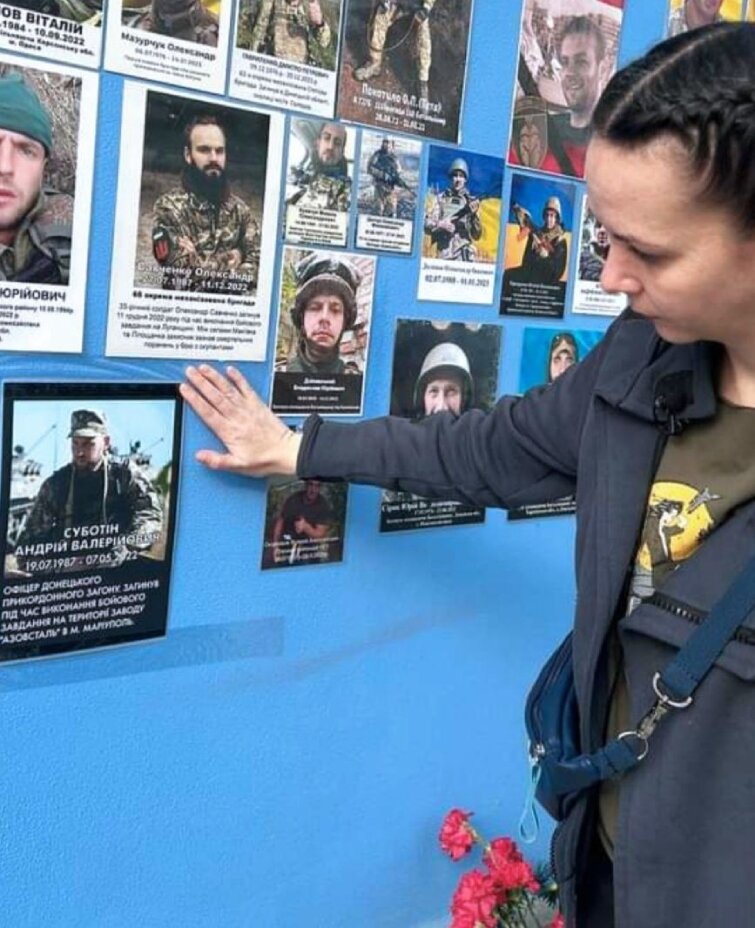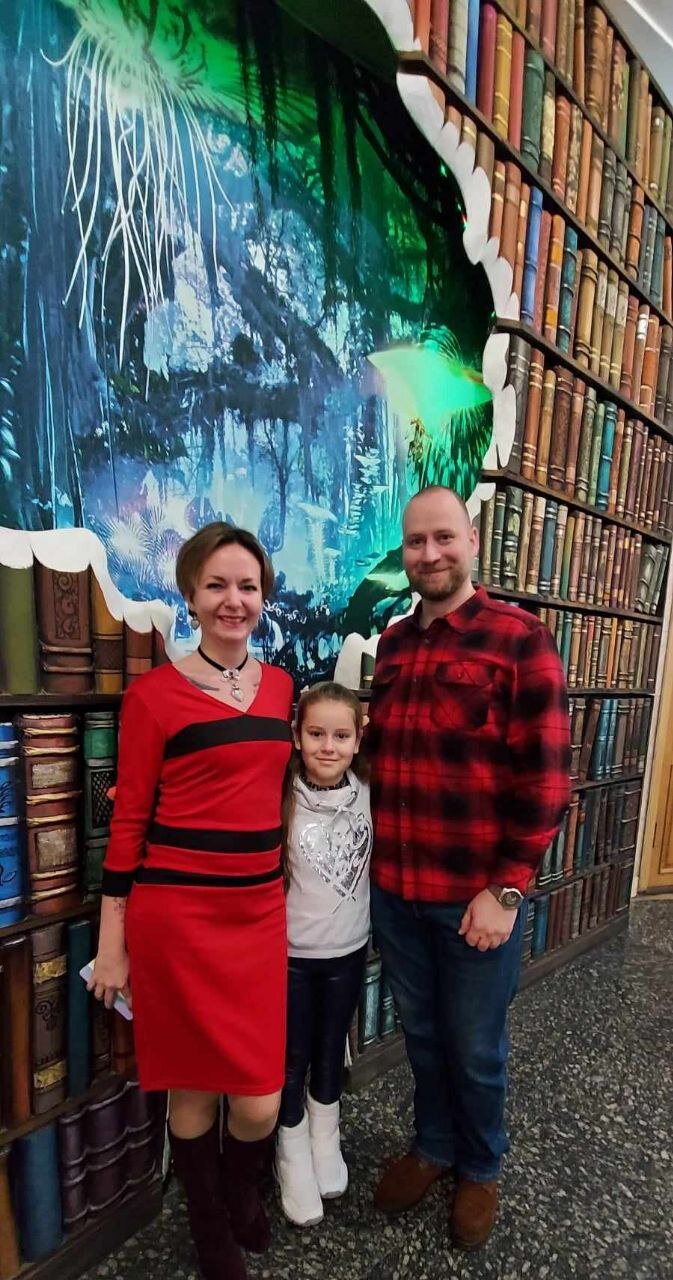Liudmyla, mother of Hero of Ukraine Andrii Subotin, killed at Azovstal: "When say ’generals’ sons don’t fight,’ I say: ’Look in my eyes. My husband is general. And our son fought until his last breath.
The body of Border Guard serviceman Andrii Subotin, who refused to leave the nearly-occupied city of Mariupol despite an order from command, has yet to be recovered. Its whereabouts and condition remain unknown…
Three years ago, a love story from the besieged Azovstal steel plant, without exaggeration, touched millions around the world. Andrii Subotin’s fiancée, Valeriia, shared on Instagram how they got married in a bunker and exchanged makeshift foil wedding rings.
A few days later, she wrote about the death of her beloved husband. At the end of May 2022, Valeriia — call sign Nava — was taken prisoner. After the exchange, she wrote a book about that time, aptly titled Captivity. Lerochka, as Andrii’s mother tenderly calls her, was desperately awaited in freedom by her husband’s parents — Valeriia is an orphan, and while she was held hostage by the Russians, her grandmother died in Mariupol... The only family she has left are Andrii’s parents. Back in 2022, when speaking about the children, Andrii’s mother Ludmyla told me that they would likely never receive their son’s body…
A few days ago, we met with Andrii Subotin’s mother, and she agreed to answer difficult questions — about life during all this time, about hope and despair. About what keeps her going, and what makes her angry. Ultimately, about how one keeps living after losing a son, with no grave to visit, no place to come and speak to him…
"IF ANDRII AND LERA HADN’T BEEN IN MARIUPOL, THEY WOULD’VE ENDED UP IN ANOTHER HOTSPOT — IRPIN OR SOMEWHERE ELSE…"
- "Over these three years, I’ve had all sorts of thoughts — what if my son hadn’t been deployed to Mariupol, or what if the kids had moved to Kyiv region earlier," Liudmyla shares with me. "At some point, Andrii and Lera had even agreed in conversation that they could relocate closer to Kyiv, but they said: we’ll stay in Mariupol until summer. That was the timeframe they’d set for themselves. When it became clear that war was coming, we still couldn’t imagine Mariupol would fall so quickly. But even if we had known, they never would’ve left. And even if they had… If they hadn’t been in Mariupol at the time, they would’ve been in another hotspot — Irpin or somewhere else. They both belonged to that kind of people — the ones who fight."
The Subotin Family: Andrii’s Parents, and he with Valeriia
In late February 2022, the border guards were ordered to withdraw from the city. And they did. But Andrii approached his commander and said: "I’m not going anywhere." Andrii stayed at his position in Mariupol. The National Guard was there, the Azov fighters… And he stayed.
- When you hear people say, "Generals’ sons don’t fight," how does that make you feel? Andrii was, after all, a general’s son. Did you ever ask your husband, "Get our son out of there? Do something to save him?"
- Even if I’d ever had such a thought, I would’ve never said it out loud. Because our family didn’t have the moral right to do so.
When Andrii went to serve in Mariupol, he didn’t advertise the fact that he was the son of Valerii Subotin. Only a small circle of senior officers knew my husband and knew that Andrii was his son. Once, already on the front line, Andrii overheard some guys talking — something like, "Looks like General Subotin’s son has joined us." He walked up and said: "Yes, I’m the one you’re talking about, but don’t say it out loud."
If someone asked him and he knew they didn’t actually know the truth, he’d just say: "No, it’s just someone with the same last name."
What mattered to him was who he was as a person — not whose son he was.
He joined the unit as a specialist. Before his service, he had worked as a lawyer — he knew his job well and quickly proved himself.
Everyone I talk to now speaks highly of him. They all say Andriusha was a truly kind person. He always spoke calmly and deliberately. He never showed if something bothered him. He knew how to communicate. And I could never ask my husband to intervene, even though he understood all the risks perfectly. But based on a few things he said, I could tell: if something happened, he’d find a way to reach them. Even though, at the start of the full-scale invasion, he had just undergone a serious surgery. Still, I knew he would do it. On February 24, Valerii — with his arm still in a sling, not yet functional — went to fight in Kyiv region.
I can just imagine the look in my son’s eyes if I had said: "Andriusha, please, leave that place…" He would’ve said: "Mom, come on… What are you even saying? How could I?" That’s just who they are. Both the father and the son. Even if I had been torn apart inside with fear, I wouldn’t have said those words. For them, it would’ve been deeply humiliating.
I’ve met with many soldiers who returned from captivity, as well as civilians. Some found me themselves, others I sought out — and I asked them about my son, what he was doing there at Azovstal. That’s how I learned that when the wounded were being delivered to the plant by boat, Andriusha was involved in the evacuation. I asked one of the boat commanders who was later released from captivity about him.
He told me: "I didn’t see the faces of those taking the wounded from us — the shelling was so intense we couldn’t even reach the shore. The guys would wade into the water and drag the wounded to Azovstal on their backs."
- Several helicopters managed to break through to Azovstal, evacuating the wounded… Your husband could’ve asked for your son and daughter-in-law to be taken out.
- No. That was impossible. When people say, "Generals’ sons don’t fight," it’s incredibly painful for us. I tell them: "Loo in my eye. My husband is a general. And our son fought until his last breath." But, you know, people behave differently. I chalk it up to the human factor. Very few truly understand me. Some even say things like, "How could you let them go — your husband to war, your children fighting…" But no one ever asked me! That was their choice — the only possible one. And my role was to support my men in that.
Back in 2014, when my husband went to the east for the first time, we didn’t even talk about it out loud at home. I knew it was only a matter of time before he would leave. One morning, I went to work as usual and he left for duty. Around midday, he called and said: "I’m heading out with the convoy in an hour." I asked the office driver to take me, and we met with Valerii on the ring road, at a gas station. We looked at each other and spoke only with our eyes. I couldn’t say a word. Anything I might’ve said would’ve felt out of place. I had a small reliquary on a chain. And he wore a cross. I took mine off, and we exchanged our charms. And that’s how he went to the east…
Back in 2014, people didn’t even realize a war was going on — that it had already become our reality. And me… I don’t think I slept at all during that time. I was like a zombie. Evening would come, and I’d just clutch that cross in my hand, unable to think about anything else.
They say: "Don’t imagine bad things — or they’ll come true…" But believe me — even when my husband was at war, and later, when our children were fighting — not once did it cross my mind that something might happen to them. That’s how certain I was that they would survive.
They knew what they were doing. They understood the situation. I trusted them completely. And for some reason, I truly believed the whole world would protect them.
"MY GOD, THEY SAID MY SON WAS GONE — AND YET I WAS HOLDING FLOWERS FROM HIM"
- How did you find out about Andrii’s death?
- They called my husband first. I was out of town with my granddaughter — Andrii’s daughter. My husband was supposed to come pick up some of his gear and bring food for the boys. I called him — asked if he could stop and buy something sweet for our granddaughter. And for the first time in my life, he said: "No, I won’t." I immediately knew something had happened. I could’ve imagined anything — one of our mothers is elderly, the other as well…But I never once thought of anything bad.
- How did your husband tell you?
- We met him near the car. I could tell right away — he wasn’t himself. I asked: "Did something happen?" He said: "Come inside."
I knew something was wrong, but not for a second did I think it was about the kids. He came in. I could see it in him — he was completely undone. "Valerii, what’s wrong?" "Synyk." "What about Synyk?" ("Synyk" — a tender Ukrainian diminutive for "son." "Mamyk" — version of "Mom." - ed.note). It was clear my husband was trying to hold himself together. He took the first blow — all of it — on himself...
He explained that someone had called and said Andriusha hadn’t returned from his position. We knew he had gone out that night. And I said: "He didn’t come back because maybe the shelling was too intense. Let’s wait." And then — this long silence. Our granddaughter was right there. I hugged her. My husband leaned in close to her, and tears started running down his face. I took it as a sign he was really worried about the child. But that something had happened? No! I couldn’t even entertain the thought. Later I asked: "Any updates?" "No." "Text his commander," I said — we had the number. "Ask if there’s any information." My husband went in and out. In and out. I asked: "Any answer?"
"Yes."He started reading the message — and that’s it. I don’t remember anything else from that day.
Our son’s brother-in-arms, Vadym Dzhafarov, made it out of captivity. We stay in touch with him. It was he who gave the commander a statement confirming that Andrii had been killed…
At the time, Lera didn’t know anything yet. It wasn’t until three days later that her comrades told her Andriusha was gone. Those May days coincided with Mother’s Day. Lera and Andriusha had ordered flowers for me — from Azovstal. Lerochka wrote about it to my husband. He couldn’t believe it — that the kids had managed to place an order from Azovstal. "Lerochka, you didn’t have to," he replied. And she said: "Dad, we already did. There’s also a birthday gift for Dianochka. Please be there to receive it."My husband turned to me and said: "Liudo, we need to go to Kyiv." "Why?" "They’re bringing you flowers." So we went home. The courier called. I picked up the flowers. There was a note: "From Andriusha and Lera." It felt like the ground was falling out from under me. I looked up at the sky: "My God, they said my son was gone — and yet I was holding flowers from him…" I came back into the apartment. The tears just kept pouring. My husband begged me to calm down. We were standing in the kitchen. And then — a knock on the window. It sent chills down my spine. It was a clear, distinct knock. We walked over to the window — and saw a pair of doves. One of them was tapping its beak against the glass. I opened the window: "Kids… my son… is that you?" And the doves flew off into the forest.
People might interpret it differently — say that in moments of deep shock, the mind invents something to cope. But for some reason, I believe it was our children who came to us.
This photo of Andrii and Valeriia was taken in March 2022 at Azovstal.
When Lerochka found out about Andriusha’s death, she immediately wrote to Valerii — to ask if we knew. Later, in the bunker, she told her comrades: "You didn’t tell me Andrii was gone, and I sent flowers to his mother… How will she bear it…" A child with a big soul and a heart full of love — that’s Lera. She was in the middle of hell herself, and yet her first thoughts were about us — my husband and me — and how not to cause us more pain.
Sometimes you hear a song, or a poem — and it feels like it’s about you. In the summer of 2022, I was at our summer house. The neighbors had the radio on — and I heard, for the first time, a song about a maple tree. A mother waiting for her son… Every word felt like it was written about me. There’s a field behind our yard. We mow the grass there, the kids play. My husband came by. I said to him: "I want to plant a maple tree." We drove out and bought one. Andriushyk was killed in May. On July 19, he would have turned 35. That day, we went to church, and then we came home and planted the maple. And now it’s there — with me. When it gets too hard… That maple has heard it all. I tell it everything. Not to complain — no. I just need to say: "I love you. You haven’t been forgotten, son…" You stand there, holding one of the leaves, and the tears just come. And then a butterfly lands on your shoulder. "Alright, son," I say. "I won’t cry…"
I no longer live in this world. Everything has changed. I no longer acknowledge the holidays we used to celebrate. More and more, I just want to stay silent and be alone with my thoughts. I can attend a rally in support of prisoners of war. We’ve organized events, raised funds, and screened a documentary about Andriusha and Liera. At one point, we bought a vehicle for the border guards, then drones. Sometimes I keep donating and donating. I think to myself, "I need to top up my phone," check the balance—and the card is already empty... But I believe I’m helping Andriusha’s brothers-in-arms as if they were my own children. I don’t want anyone to suffer the way I have. Even if someone’s a bad person who doesn’t believe in Ukraine—if their child is fighting, I still want that child to live. We’re all fighting now, each in our own way. Every year, my husband submitted petitions asking to be allowed to serve—he’s already over 60.
"I CONSTANTLY FEEL MY SON. HE'S STILL HERE — IN TOYS, IN DRIED FLOWERS I KEEP!"
- The night Andriushyk was killed, Dianochka and I lay down early and talked for a long time. She was nine at the time. She’s a very curious child, always wants to know everything. And after she fell asleep, I got up. We have a huge window in our bedroom. I always look out of it, because I can see the sky. And at the very moment when Andriusha passed, I was looking at the sky and... I felt nothing. Thoughts kept racing through me over and over: the children at Azovstal, the children at Azovstal. I stood there like that for three hours. Could my thoughts have caused any harm? No. On the contrary!
When people who know our whole family is at war send me prayers to read, I begin reciting them—and then I see: if he dies... What kind of prayer is that? Why would he die? It’s so incomprehensible to me, I can’t even put it into words.
On May 7, it was three years since Andriusha was gone… But I feel my son every hour. My Andriusha is. I still don’t feel like I’ve lost him, even though my soul is torn apart. Sometimes it gets unbearably hard. I just want to see him, to hug him. He was such a gentle son. Tall, broad-shouldered. But he’d come up and wrap his arms around me from behind...He’d often sit in the study, in the armchair, writing something. Always well-groomed, freshly trimmed. I’d come in from behind, hug him, and always plant a kiss on his ear. I still feel all of that now.
Many people have told me by now: you have to let him go. What kind of advice is that?! Sometimes it kills me! How am I supposed to let go of my child? He’s everything to me. Here’s a toy he brought me. Here’s a stone he picked up somewhere. These dried flowers — they’re from bouquets he gave me. Whenever he came back from a work trip, he’d always bring me flowers. And I have this habit — I dry some of them. It’s all still here. My Andriusha is in every little thing. How could I say he’s gone? He’s not. There are moments when everything inside me breaks apart, and I just want someone to tell me they’ve seen him somewhere, that he’s out there…
Andrii was always very calm. He was born quietly and left just as quietly, without even saying a word to me. He doesn’t come to me in dreams, even though I think about him constantly. He only appeared once, when Liera was in captivity. I saw them both in that dream. As always, he said, "Mamik, don’t worry, we’ll be back soon." Some time later, Lierochka returned. And since then, my son hasn’t come to me in dreams. But he’s present in everything. And that means the world to me.
However much time I’ve been given to live — so be it. Of course, I desperately want to bring Andriusha’s body home. He felt good here, at home. I believe that even where he is now, he’s not alone — many of his brothers-in-arms are lying there too. As Liera once said: he’s with the guys. She once had a dream where Andriusha came to her and said, "You have to make it out. I’m here with the guys."
- You said you know there won’t be a body…
- We knew for sure that the body was taken from the position and brought to a refrigerated truck. His brothers-in-arms saw him there. But no one knows exactly which of those trucks were bombed. And after that, everything there was covered over. There’s also other information — that some of the bodies were taken out of Azovstal. But where to? If they were buried in a mass grave somewhere, then no one will ever find them...
- But from time to time, bodies are returned from Azovstal...
- They are returning bodies. But mostly not from Azovstal — they’re the ones found throughout the city. Although back in 2022, there were a few returns specifically from the plant. We track every exchange. We submitted DNA samples. But there’s still no reliable information. As of now, we don’t know whether our son was taken out of Azovstal or whether he remained there...Some say everything there was burned. Others say bodies were taken out. But there are remains being returned — for example, from the area known as "Zaliziaka," where the field hospital was located. It was hit in a strike and destroyed. My husband used to go there, especially early on, and look at the bodies. He said it was clear they came from the hospital — he himself saw a body fragment with an IV still attached. But later, we agreed that he wouldn’t go anymore. It’s just impossible to bear — emotionally or physically. You go through the files, searching for your own…
We were told that a sniper shot Andriusha. That’s why we’re certain his body was intact. I also spoke with a young combat medic. She told me they tried to write as many tags as possible and stuff them into every pocket, so that each fallen soldier would have several — to help with identification.
And Andriusha had his military dog tag. And a second one — the one Lierochka made for him. When our granddaughter was very little, she once drew a cat on the pavement with chalk.
Liera had that little cat image engraved on the tag. He never took it off. And for some reason, we thought that would be the thing that would help us recognize our son. Andriusha also had an expensive watch. The only thing he ever cared about, really — expensive watches. He had several, and he took the most valuable one with him to Mariupol. If someone decided to take the watch, then everything else must have been left behind. If they had returned his body to me in the summer of 2022, I would have recognized Andriusha without a doubt. I felt like I knew every one of his fingers — how the bones in his hands were shaped… But there is no body. And now, sometimes, I fall into such despair that I say to Andriusha: Maybe we’ll reach you sooner than you’ll return to us... I do believe all of our agencies are doing what they can, but there’s no one to negotiate with. I don’t even know what words to use anymore to describe all that Russian scum. During the first year, I still believed we’d push them out of Mariupol, that we’d be able to get there and find our son.
- Unfortunately, this did not happen.
- Sometimes I start blaming myself — thinking I didn’t do enough. People are being returned. At one point, I made up my mind: I’m a mother, not a soldier, I’m not fighting. So I’ll walk to Mariupol. I mapped out how I could do it. I even thought about writing a letter to the relevant authorities — to let them know I’d be going. I wasn’t going to involve anyone else. My life means nothing. People say things like you have to keep living — but this isn’t life. It’s not even existence. I’ve gone from being happy and cheerful to being something else entirely — someone who just has to keep breathing. So I came up with this plan: I would walk to Mariupol. But one day, my husband asked me to just hear him out. He couldn’t tell me directly that I was wrong, or that I didn’t have the right to do this. He just said: "I’m asking you, please, think about it. Let this idea go." I think he spoke with Liera, too, because she told me: "Mama, you can take risks, you can go — if there’s even a chance of a real outcome. But believe me, those Russians don’t care about you. You mean nothing to them. They’ll just say some crazy woman is walking through the war zone. You won’t make it there." But I didn’t care. I wanted to get as close as possible to the place where my son was killed — to make some kind of statement. To shout: "Are the bodies there?" Because no one cares about them. And in the beginning, there was talk that the bodies would be returned. I was sure they would bring them back. But now… everything there has been wiped off the face of the earth.
I also spoke with Andriusha’s friends. They told me: "First of all, our agencies would be against it. Of course, they can’t physically stop you. But you wouldn’t get far. You’d reach one of our checkpoints, and they just wouldn’t let you through." Others said: "Even if you start walking and make some kind of public statement, it wouldn’t cost the Russians a thing to shoot you — like a chicken. And nothing would happen. What would be the point? They’re not going to give you your son."If I knew for certain that he was buried somewhere, even in a shallow grave along a fence… I would go. Any time I hear a rumor, someone saw someone somewhere, I start replaying everything in my head again, calculating. I even kept records: who died when, and when they were returned. I’d compare — this one died after Andriusha, that one before. They can’t be taking bodies from different locations — returning one, while another is still lying elsewhere? It’s just so… I can’t even say it’s painful anymore. It’s just… unresolved. There’s a black wall in front of us — and that’s it.
- The inability to bury him… Would it bring you any relief if you had a place to visit?
- No, it wouldn’t. Right now, I go to the Alley of Glory in Irpin. There’s a banner with Andriusha’s photo. And I bring flowers to the Wall of Remembrance near St. Michael’s Cathedral.
On the Wall of Remembrance near St. Michael’s Cathedral in Kyiv, there is a photo of Andrii Subotin. This is where his loved ones come to honor the Hero.
There would also be a grave — if we had buried him. But at least then I would know my son is here. My husband and I have even decided: we don’t need any memorials. Andriusha was very modest. What mattered to him were the people close to him — their presence, their warmth. If the time comes and they do return Andriusha, he will be buried in Irpin. That’s already been agreed. He lived there. His daughter is there. And it’s not far for me to go visit him. We’ve made peace with the idea: if he’s brought home, he’ll be laid to rest on the Alley of Heroes — and later, my husband and I will be buried at the same cemetery, not far from him. But for now, sadly…
"I DON'T WANT TO BURDEN ANYONE WITH MY GRIEF. THIS IS A CROSS I HAVE TO CARRY THROUGH LIFE. SOMETIMES I COLLAPSE UNDER ITS WEIGHT, BUT I GET BACK UP AND DRAG IT ON."
- You say it’s hard for you to talk to other families…
- When I speak with someone whose loved one is serving, I understand their worries and emotions — we’ve been living this war since 2014. In those cases, I’m ready to offer support, to do something together. But families are different — and so is the way they cope with the same grief. Some tell me, "It’s time to let your son go, don’t disturb his peace." And I’m taken aback, because it feels like we’re all on the same ship, hit by the same wave — and yet we’re experiencing it so differently. I’m not saying that’s wrong. Every family has its own kind of bond between parents and children. Andriusha was never overly attached, but he always stayed close. We would message each other, but I tried not to burden him with our problems. Still, he would immediately take charge. When my husband got COVID, Andriusha immediately asked, "Send me the prescriptions — another doctor here will take a look." That’s when I realized: even from far away, he could always ask one of his friends to come to our home and help. That’s just how he was. His classmate — also his child’s godmother — once told me that Andriusha was closer to her than her own brother. He was always the first to jump in and help.
There was never a time when my son didn’t bring me flowers. He loved giving them. And from almost every bouquet, I’d keep at least a leaf or a petal. For every holiday, he and Lierochka would send me something thoughtful. And I’ve kept it all. These little things — they’re what keep my heart from breaking. On the contrary, they’re what I live by now.
When my son got married, he still knew that he always had a room at home — his own wardrobe, his bed. He kept a set of keys to the apartment. He was always welcome. Before, he was on his own. And then — he had a wife and child. Sometimes, he’d call me from Mariupol: "Mamik, in my closet… Can you take a look?" He’d ask me to find some legal documents or other things.
In March 2022, I stayed at home, sleeping on a mattress in the hallway by the front door. There were times when shells were falling in the forest near our house. The explosions were so powerful, they’d jam the door shut. At first, I didn’t go outside at all. I wasn’t worried about myself in the slightest. As soon as the electricity came back on, I’d cook something. My husband would text me: "A blue car will pull up, bring something out." So I knew I had something to do. I was like a communications officer, too. There was no direct contact with Andrii, but Liera sent a plus sign. Later that night, Andriusha messaged me. I wrote back: "Liera sent a plus." Then he said: "Mamik, send me your bank card number." — "Why do you need my card? I’ve got everything I need here. I’m waiting for you." — "Let’s not argue. I want you to buy yourself a gift." So I bought this white gold ring. I wear it next to my wedding ring — the one I’ve had for forty years. When Lieroсhka saw the ring, she said Andriusha would’ve really liked it. I bought it a few months after that conversation. I just couldn’t bring myself to do it right away. But then I thought — my son asked me to buy something. "Synyk," I told him, "I don’t need anything." — "Then buy yourself a bucket of red caviar. I don’t know what you want." — "I don’t want anything. I’m waiting for you."
He always knew me so well — even just by the sound of my voice — even though I tried not to cry. After that conversation, he sent a follow-up message: "Just don’t cry. My clothes will get soaked, and I have nowhere to dry them. Your tears will reach me even here." I haven’t taken off that ring since....
Back in 2015, my husband suffered a concussion. The blast wave also damaged his muscles. His arm was in pain, and eventually, it stopped working altogether. In 2022, he underwent surgery. At the time of the full-scale invasion, he had just started regaining movement in that arm. And then — the war. He went off to fight, opened the safe, and left me his hunting rifle. Both he and our son had hunting licenses. Next to the rifle, Valera placed two or three boxes of cartridges. "Remember how to shoot?" — "I remember." — "Alright then. I’m off." One day, he called and said: "I have a request. Walk through the apartment and destroy everything military-related — my medals, my uniform, everything." I said nothing at the time. But later, I replied: "Valera, everywhere I look — it’s all about the army. You want me to destroy our entire life? I won’t touch a thing. As long as I’m here — it all stays. And if I’m no longer here — then I don’t care what anyone does with it."
Diana, Andrii’s daughter, with her father and Valeriia
My granddaughter is growing up. She loves to draw. I keep all her drawings. Sometimes I show them to her, and she’s surprised: "Grandma, you kept this?" And I still have Andriusha’s first little shirts, his baby hats, his toys. We moved so many times across this world — but we always took it all with us. One time, we were at the dacha. My granddaughter was playing, and Andrii walked in: "Oh, my building set."
— "Yes," Diana replied, "It’s your set. Grandma gave it to me." It’s things like that, I think, that keep me from falling apart.
Andrii Subotin was posthumously awarded the title of Hero of Ukraine. The award was accepted by his father and daughter.
My circle of communication has grown very small. There are people who call and, just by the sound of my voice, understand that it’s hard for me to talk. We can have a conversation about nothing at all — about which flowers are blooming, whether there was frost. And we agree to talk again tomorrow. No one tears open my soul. And I don’t want to burden anyone with my grief. This is the cross I have to carry through life. Sometimes I collapse under its weight but I get back up and drag it forward.
We are so proud of our son. So many people have told us stories about him — how he behaved, how he cared for others. At Azovstal, they were starving. Each person was given just one small bowl of food per day. Andriusha made a decision: "Guys, we won’t take from the common pot. It’s better to give our portions to the wounded. We’ll figure something out for ourselves." They collected rainwater and boiled it. He once told me himself: "We eat late. There’s a brother-in-arms here who cooks porridge for us. We get him the supplies — some grain, some water." In the fall of 2022, a border guard officer returned from captivity. He had been severely wounded and was among the first to be exchanged. I went to the hospital, and this man said to me: "I used to cook porridge for the guys." He had very serious injuries — surgeries on his arms and legs. He even experienced clinical death at Azovstal. But he survived. Thank God — he survived! He told me that in the evening, Andriusha would say: "It’s time for us to eat. You're making porridge for us." And then he’d point at him and run off somewhere — to find more grain.
Andriusha was always in good spirits. Even when things in Mariupol had already gotten very intense, he called us a couple of times. After talking to him, I’d say to my husband: "I have such a strange feeling. It seems like everything is fine with him, like he knows exactly what he’s doing. He sounds so confident!" I talk to people who were there during that time. Some of them wrote to their families: "I’m sorry. Goodbye."
But Andriusha — he never said anything like that. In March, he was wounded — but he never told us. He went to the medic and said:
"Do you love me, Elina? I love you too. Don’t include me in the general injury report — my parents will find out for sure. And I don’t want that. I don’t want to worry them." Later, when we were working on the paperwork, we received documents that listed his rank as Captain. My husband called them and said: "Guys, I asked you to be careful with the details. So we don’t have to make corrections. He was a Senior Lieutenant." — "No," they replied, "he was a Captain." It turns out he had been promoted — posthumously...And we found out about his injury purely by chance.
- How do you feel about the word "hang in there"?
- It’s a strange one. I used to react to it. But over time, it just stopped meaning anything to me. Someone says it to me, and I think: What else could they possibly say? They just want to say something. But what can you say to someone who’s lost the most precious thing in their life? No words will do.
Back in 2015, even the newspapers wrote that my husband had been wounded. But even during those days, I still had to go to work. I had to look presentable, put on lipstick. There was no war here, after all. Now, sometimes I go out and someone asks: "Oh, why do you look so sad? So down?" And I think: I honestly don’t even know what to say. Usually, I just respond: "Well, the war, you know." But until it knocks on someone’s own door, they’ll never truly understand what others are feeling. We’ve been living in this since 2014. We have friends, not military, who have stood by us from the very beginning. They’re all working toward victory, even though their business isn’t what it used to be. It’s hard to keep it going now, let alone grow. But we always feel that they’re with us. And then there are others — who are completely detached from all of this.
Unfortunately, over the past year, society has become very divided. What irritates me the most is the language. Sometimes people say things that seem important — but it’s always in Russian, Russian... In 2022, even those who had never spoken Ukrainian before were using it — maybe clumsily, but they were trying. And now, again, we’re being told there’s no difference. But there is.
One time, we were standing on Maidan at a memorial event for the fallen. I rarely attend such gatherings. But that day, I went. A woman was reading out the names or call signs of fallen Azov fighters. And people just walked right through us, as if they didn’t see us. As if it was too hard to walk around, to show a bit of respect. I looked up at the sky and whispered: Children, forgive us. I don’t expect others to stand with us. But… There was a woman with a small child. She pushed through us to get by. One of the boys said, "Please, could you go around?" She replied, "It’s sunny over there." — "Well, it’s not that big of a deal. We’re holding a memorial event here." And what do you think she did? She took the child by the hand and walked straight through the little flags and photos — over the fallen — stepping nearly on their faces… That kind of thing rarely happens to me, but this time — the tears just poured down. I was frozen. I stared at her back and thought: What are you doing? Your child is alive because someone else’s name is written on one of those flags. Moments like that leave me shaken for days. I can’t stop replaying it in my head. I’m not asking people to remember our son. I write about him on Facebook because he’s my child — and I want to write about him. But for most people in this country, small things are becoming important again — prices, queues. But the most important thing… is that the children survive.
Life is like a book. I wish I could read it from the beginning, place a bookmark somewhere and never reach the final full stop... Deep down, I believe: nothing lasts forever, especially evil. It will be punished. Someone will live to see the ending.
Violetta Kirtoka, Censor. NET

